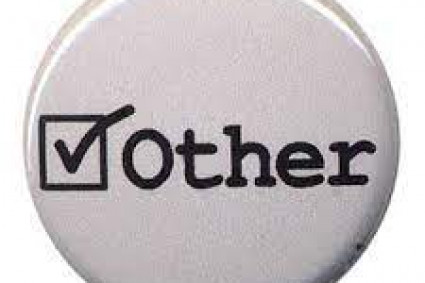
The Internet of Things (IoT) is transforming healthcare at a remarkable pace, with the market expected to surpass USD 300 billion in 2025 as demand for connected, data-driven healthcare solutions continues to rise.This boom shows how much we need smarter, quicker, and more effective healthcare services. These days, patients want care that's tailored to them, easy to access, and tech-savvy — and adding IoT to healthcare IT solutions is making a big difference.
From big hospitals to small clinics, health centres now use internet-connected systems to help patients work better and keep up with changes in healthcare. This article looks at how this tech helps health providers and why it's key in 2025.
What Is IoT in Healthcare, and Why Is It Important?
IoT (Internet of Things) in healthcare means smart medical tools linked to the internet that gather, send, and study health info in real time. When these tools connect to healthcare IT solutions, the data they provide can help doctors make better choices, stop emergencies before they happen, and give better care to patients. At the same time, this tech makes healthcare more efficient and easier to access.
Main Advantages of Adding IoT to Healthcare IT Systems
Healthcare IT systems with IoT tech built in help hospitals and clinics in several ways. Here's the scoop:
1. Keeping an Eye on Patients in Real Time
IoT gadgets like fitness trackers, ECG monitors, and glucose sensors always gather patient stats and send them to hospital computers.
Perks:
Around-the-clock watching of critical patients from afar
Quick heads-up when readings go off track
Quicker action during urgent situations
Improved management of long-term illnesses without constant trips to the hospital
2. More Efficient Hospital Operations
IoT gadgets monitor equipment condition, how medicines are stored, and how patients move around hospitals. When this info works with healthcare IT systems, it helps hospitals run more efficiently.
Benefits:
Equipment tracking as it happens
Booking appointments and managing patient flow
Fewer mistakes by people in giving medicine and keeping records
Better use of staff when it's busy
3. Healthcare Choices Based on Facts
Today's hospitals handle huge amounts of patient info. IoT devices linked to healthcare IT systems help turn this info into useful insights using tools that analyse and report data.
Benefits:
Tailored care suggestions based on a patient's medical history
Health forecasts for patients at high risk
Smart hospital resource and budget planning
4. Better Patient Experience
Modern patients expect convenient, technology-enabled healthcare services. By combining IoT with healthcare IT solutions, providers can offer features like digital health records, virtual consultations, and remote patient monitoring.
Perks:
Less waiting for tests and doctor chats
Easy access to health files and test results from anywhere
Video calls with doctors from your couch
Happier patients and a better name for hospitals
5. Smoother Hospital Operations
Running a hospital has an impact on managing resources, staff, and patient flow. IoT-powered hospital management software makes these processes easier by combining smart devices and data systems.
Benefits:
Track beds, medical devices, and ambulances in real-time.
Schedule maintenance for critical equipment.
Manage assets and control stock
Boost security for patient data and hospital assets.
Why More Healthcare Providers Invest in IoT-Powered Healthcare IT Solutions
Hospitals and clinics use IoT-driven healthcare IT solutions to boost service quality, keep operational expenses in check, and improve patient outcomes.
Key drivers include:
Growing need for telehealth and home-based care
Operating costs keep going up, and there aren't enough staff.
Patients know more and want digital services.
Rules say we need to report data right away and manage records.
How Healthcare Tech Helps Connect Things to the Internet
New healthcare tech helps connect things to the internet. It gives safe, cloud-based systems to store, work with, and look at health data. This makes sure connected devices work well with hospital systems, tools to help make decisions, and ways for patients to see their info.
We can use it for:
Health trackers you wear and smart pumps for medicine
Tracking and working with ambulances using internet-connected things
Machines that give out prescriptions on their own
Managing patient data in the cloud
To Wrap Up
In today's medical world, combining IoT with healthcare IT solutions isn't optional — it's crucial. This combination has an impact on patient safety, allows for real-time monitoring, helps manage hospitals better, and cuts costs. It brings clear benefits to both healthcare providers and patients.
Hospitals that put money into IoT-powered healthcare IT solutions get ahead by offering smarter, quicker, and safer healthcare. To check out modern, expandable healthcare IT solutions made for your facility, head to Arobit's healthcare software solutions.
FAQs
Q1. What is the role of IoT in healthcare?
IoT devices in healthcare gather and send patient health data as it happens. When linked to healthcare IT solutions, this data has an impact on remote patient monitoring, boosts diagnosis accuracy, and makes hospital operations better.
Q2. How do healthcare IT solutions work with IoT?
IoT devices transmit health-related data to hospital servers or cloud systems. Healthcare IT solutions then store, process, and analyse this information. This allows healthcare providers to access patient data right away, handle appointments, and make quicker clinical choices.
Q3. What are the advantages of integrating IoT with hospital management software?
When IoT has a connection to hospital management software, it guarantees:
Up-to-the-minute monitoring of hospital resources
Quicker emergency response coordination
Automatic maintenance warnings for key equipment
Better security and access control
Q4. Is IoT integration secure for patient data?
Yes. Current healthcare IT solutions make data security a top priority with cutting-edge encryption, layered user authentication, and adherence to healthcare data protection laws such as HIPAA.
Q5. What types of healthcare technology solutions support IoT?
Systems to monitor patients, platforms for telehealth, smart devices for medical use, and tools that manage patient data in the cloud all help healthcare providers to integrate IoT. These technologies have an impact on how healthcare services are delivered and improve patient care.




